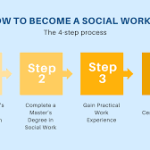Free Online Software Engineering Courses & Certificates
The field of software engineering is rapidly evolving, making it essential for aspiring developers and professionals to stay updated with the latest skills and technologies. Online courses offer an accessible and flexible way to learn software engineering concepts, techniques, and tools without the financial burden of traditional education. This article will explore various free online software engineering courses and certificates, detailing what they cover, where to find them, and how to leverage these resources for career advancement.
Understanding Software Engineering
Before diving into available courses, it’s important to understand what software engineering entails. Software engineering involves applying engineering principles to software development in a methodical way. Key aspects include:
- Requirements Analysis: Understanding what users need from the software.
- Design: Creating an architecture and design for the software.
- Implementation: Writing the actual code.
- Testing: Verifying that the software works as intended.
- Maintenance: Updating and fixing the software post-deployment.
Software engineers work with various programming languages, tools, and methodologies to develop software solutions. As technology evolves, so do the skills required in this field, making continuous learning essential.
Benefits of Online Courses
Accessibility and Flexibility
One of the primary advantages of online courses is their accessibility. Learners can study at their own pace and from anywhere, making it easier to balance education with work or other responsibilities. Additionally, many courses are available for free, allowing anyone to access high-quality education without the financial commitment.
Variety of Learning Formats
Online courses come in various formats, including video lectures, interactive coding exercises, quizzes, and projects. This variety helps cater to different learning styles and preferences, ensuring that learners can find a method that works best for them.
Certification Opportunities
Many free online courses offer certificates upon completion, which can be valuable for enhancing a resume or LinkedIn profile. While not all free certificates carry the same weight as those from paid programs, they still demonstrate a commitment to learning and skill development.
Top Free Online Software Engineering Courses
1. Harvard University – CS50: Introduction to Computer Science
- Platform: edX
- Duration: 11 weeks (3-6 hours per week)
- Description: This introductory course teaches the fundamentals of computer science and programming using languages like C, Python, and SQL. It covers algorithms, data structures, and web development basics.
- Certificate: Available for a fee.
Why It’s Great: Harvard’s CS50 is renowned for its comprehensive curriculum and engaging teaching style, making complex topics accessible to beginners.
2. University of Toronto – Learn to Program: The Fundamentals
- Platform: Coursera
- Duration: 4 weeks (5-7 hours per week)
- Description: This course introduces programming concepts using Python, focusing on problem-solving and logical thinking. It covers variables, control structures, and data types.
- Certificate: Free to audit; certificate available for a fee.
Why It’s Great: The University of Toronto offers a strong foundation for beginners, with practical examples and exercises that reinforce learning.
3. Google – Android App Development for Beginners
- Platform: Google Developers Training
- Duration: Varies by module
- Description: This course provides an introduction to Android app development, focusing on Java and Android Studio. It covers the app development process, user interfaces, and data handling.
- Certificate: No official certificate, but you gain practical skills.
Why It’s Great: With the prevalence of mobile applications, learning Android development from Google enhances your skills and credibility.
4. Codecademy – Learn Java
- Platform: Codecademy
- Duration: Self-paced
- Description: This interactive course covers Java programming, focusing on syntax, control flow, and data structures. It includes hands-on coding exercises to reinforce learning.
- Certificate: Pro members can earn certificates; free tier available.
Why It’s Great: Codecademy’s interactive platform allows you to practice coding in real-time, enhancing your learning experience.
5. MIT OpenCourseWare – Introduction to Computer Science and Programming in Python
- Platform: MIT OpenCourseWare
- Duration: Self-paced
- Description: This course covers the basics of computer science and programming using Python. It focuses on algorithmic problem-solving and programming concepts.
- Certificate: No certificate, but comprehensive course materials are available.
Why It’s Great: MIT’s curriculum is rigorous and provides access to high-quality educational resources without cost.
6. FreeCodeCamp – Responsive Web Design Certification
- Platform: freeCodeCamp
- Duration: Self-paced (approximately 300 hours)
- Description: This course covers HTML, CSS, and web design principles. It includes hands-on projects to build real websites, making it practical and applicable.
- Certificate: Yes, upon completion of projects.
Why It’s Great: FreeCodeCamp offers a project-based approach that allows you to build a portfolio while learning.
7. Coursera – Software Processes and Agile Practices
- Platform: University of Alberta on Coursera
- Duration: 4 weeks (4-6 hours per week)
- Description: This course introduces software development processes, focusing on Agile methodologies and practices. It covers Scrum, Kanban, and more.
- Certificate: Free to audit; certificate available for a fee.
Why It’s Great: Understanding software processes is essential for any software engineer, especially in Agile-focused environments.
8. LinkedIn Learning – Becoming a Software Developer
- Platform: LinkedIn Learning
- Duration: 2 hours (self-paced)
- Description: This course provides an overview of the software development field, outlining key skills and career paths. It includes insights into programming languages, tools, and frameworks.
- Certificate: Yes, upon completion.
Why It’s Great: This course is excellent for beginners who want to explore the software development landscape before diving deeper into specific areas.
9. Udacity – Intro to Programming Nanodegree
- Platform: Udacity
- Duration: Self-paced
- Description: This nanodegree program covers foundational programming skills, including HTML, CSS, Python, and JavaScript. While primarily paid, Udacity occasionally offers scholarships for this program.
- Certificate: Yes, with paid enrollment.
Why It’s Great: Udacity is known for its practical, project-based approach, allowing students to build a portfolio alongside their learning.
10. Khan Academy – Computer Programming
- Platform: Khan Academy
- Duration: Self-paced
- Description: This course covers various programming concepts, including JavaScript, HTML/CSS, SQL, and data visualization. It features interactive coding exercises and projects.
- Certificate: No formal certificate, but a strong foundation is established.
Why It’s Great: Khan Academy offers a user-friendly interface and a wealth of resources for learners of all ages.
Tips for Maximizing Online Learning
While free online courses offer valuable learning opportunities, maximizing your experience requires active engagement and dedication. Here are some tips for success:
1. Set Clear Goals
Establish specific, measurable goals for what you want to achieve with each course. This could be mastering a particular programming language or building a portfolio project.
2. Create a Study Schedule
Consistency is key in online learning. Create a study schedule that fits your lifestyle and stick to it, treating it like a traditional class.
3. Engage with the Community
Participate in online forums, discussion boards, and social media groups related to the courses you are taking. Engaging with peers can enhance your understanding and provide networking opportunities.
4. Practice, Practice, Practice
Hands-on coding practice is essential for mastering software engineering concepts. Apply what you learn through projects, coding challenges, and contributing to open-source projects.
5. Build a Portfolio
As you complete courses and projects, compile your work into a portfolio. This will showcase your skills to potential employers and provide tangible evidence of your abilities.
6. Stay Updated
The tech industry evolves rapidly. Subscribe to newsletters, follow industry leaders on social media, and join relevant online communities to stay informed about the latest trends and technologies.
Conclusion
Free online courses and certificates in software engineering provide an excellent opportunity for aspiring developers to gain valuable skills and knowledge without the financial burden of traditional education. With a plethora of high-quality resources available, learners can explore various programming languages, software development processes, and specialized topics at their own pace.
Whether you’re starting from scratch or looking to enhance your existing skills, these courses can help you build a strong foundation in software engineering. By setting clear goals, engaging with the community, and continuously practicing, you can successfully navigate your journey in the exciting field of software engineering. As technology continues to advance, the demand for skilled software engineers will only grow, making now an ideal time to invest in your education and career.


